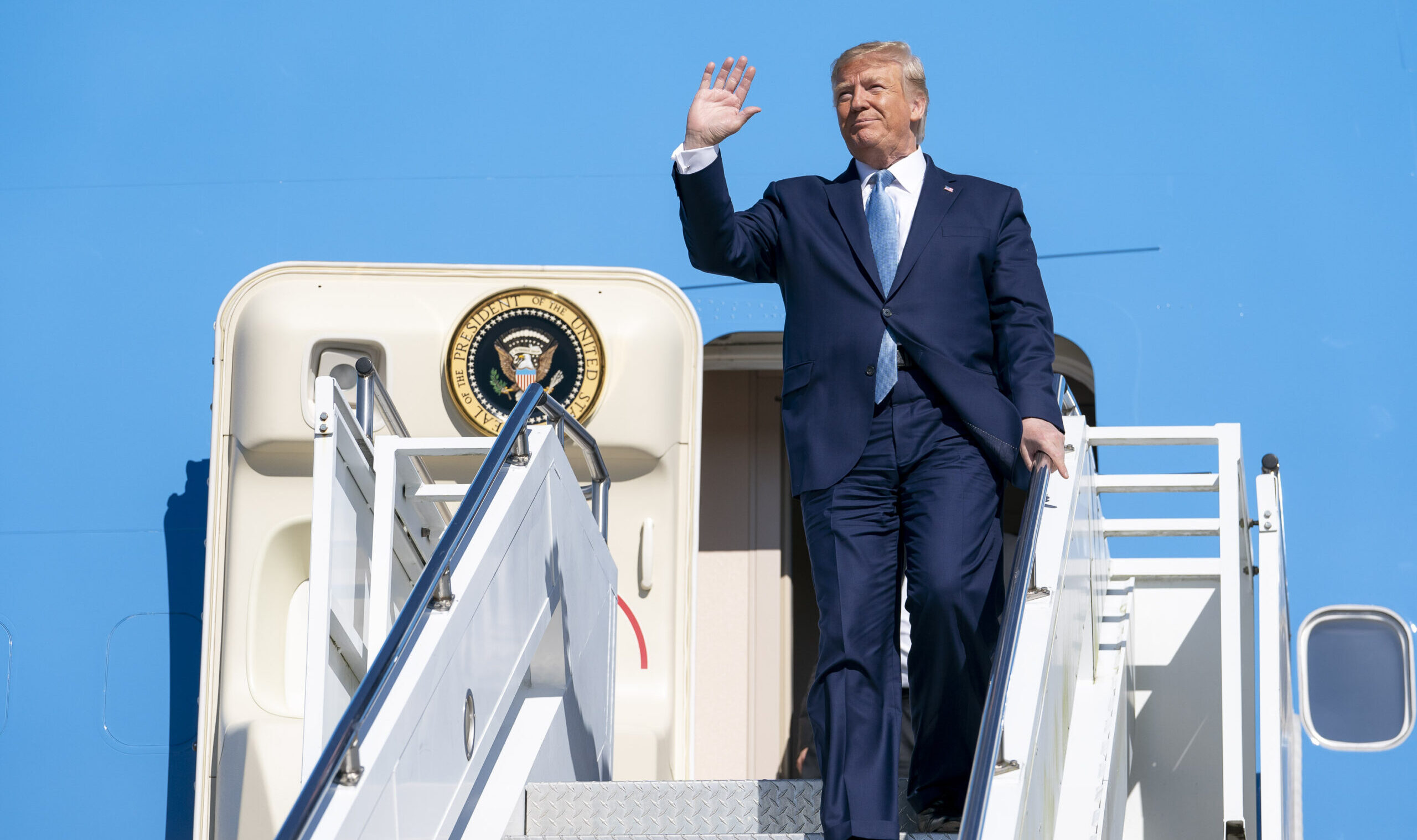It Is Time for Trump’s Second Escalator Moment
Can an un-campaign win?

With the field cleared by Nikki Haley’s Wednesday campaign suspension, Donald Trump and the Republican Party may now consolidate their resources and attention and set their sights on the general election. While the temptation is to rest a moment, in fact it is a dangerous time. This is the last opportunity to fashion a robust framing for the campaign, and to determine which of Trump’s two prior runs will serve as the prototype.
There are three speeches that defined the early Trump juggernaut.
The first was his announcement speech on June 16, 2015, following his literal deus ex machina arrival via golden escalator. “Sadly, the American dream is dead”—powerful stuff. Trump outlined his core policy commitments—immigration, trade, infrastructure, foreign policy, law and order—and his core ethical commitment, namely, a defense of the forgotten man. (A two-way commitment, sure, but an ethical commitment nonetheless.) This speech was broadcast and endlessly rebroadcast; its transcript was printed in full in TIME, POLITICO, and elsewhere. Nobody with a TV or a computer or a radio (or, for that matter, with eyes or ears) was uninformed of Trump’s positions.
That campaign’s messaging was disciplined and forceful. Trump’s 2016 RNC speech expanded on those core policy commitments, and added strong, almost frightening rhetorical flourishes to the ethical commitment: “I alone can fix it”; “I am your voice. So to every parent who dreams for their child, and every child who dreams for their future, I say these words to you tonight: I’m with you, I will fight for you, and I will win for you.”
The (first?) inaugural, the “American Carnage” speech, sealed the deal:
We are one nation—and their pain is our pain. Their dreams are our dreams; and their success will be our success. We share one heart, one home, and one glorious destiny. The oath of office I take today is an oath of allegiance to all Americans. For many decades, we’ve enriched foreign industry at the expense of American industry; subsidized the armies of other countries while allowing for the very sad depletion of our military; we’ve defended other nation’s borders while refusing to defend our own; and spent trillions of dollars overseas while America’s infrastructure has fallen into disrepair and decay.
This is great stuff. Everyone can tell you what Trump 2016 was about, and the slogans that went with it—“Build the Wall,” “Make America Great Again.” The monologues at his rallies and his more issue-focused speeches, like the National Interest foreign policy speech, could point back to this handful of concrete positions and mottoes.
By contrast, the 2020 Trump campaign was unfocused. The party failed to produce a platform, instead belatedly shooting out a 50-item policy wishlist for the second term, which included the oddly specific (changes to the arcana of medical billing) and almost indefinitely broad (“Maintain and Expand America’s Unrivaled Military Strength”). This is hardly the stuff of slogans. There were no great speeches in the 2020 campaign; the defining messaging moments were Trump’s offputting debate performances. (Not coincidentally, it was clear from the end of September on that Trump was losing.) The slogan “Keep America Great” was static, almost sheepish. It was an un-campaign betting that the feebleness of Joe Biden would carry the day. It turns out, it didn’t; a placeholder Republican campaign worked no better for Trump than it did for Mitt Romney.
Subscribe Today
Get daily emails in your inbox
The question Michael Anton asked at the end of “The Flight 93 Election” and its answer are perhaps now more salient than they were in 2016: “But for those of you who are sober: Can you sketch a more plausible long-term future than the prior four following a Trump defeat? I can’t either.” The rhetoric of 2016 was well matched to the urgency of the situation; it was clear and aggressive. This current run, 2024, has yet to produce a clear message or platform. Part of this is an accident of the contested or pseudo-contested nomination race—the better part of the field was trying to claim “Trumpist” positions against Trump. (Even Haley made a half-hearted stab at a “Trump changed” narrative, excusing herself for serving as Trump’s UN ambassador and then running against him.) This was bound to muddy the waters. The waters must now be made clear, so the 2020 un-campaign is not repeated.
“In the end, they’re not coming after me. They’re coming after you—and I’m just standing in their way.” This comment from Trump’s speech responding to the Justice Department’s indictment of him last June can be a kernel of the message. Something about unity and normality and protecting you, the regular American, from unaccountable powerful forces in the state and its oligarchic friends. Something about pulling back our imperial forces, which are stretched yet thinner than they were in 2016. “Build the Wall” can be dusted off. But the point is that there must be something. Nature may abhor a void; voters certainly do.
Trump needs his second golden escalator moment. May we suggest an op-ed in The American Conservative?